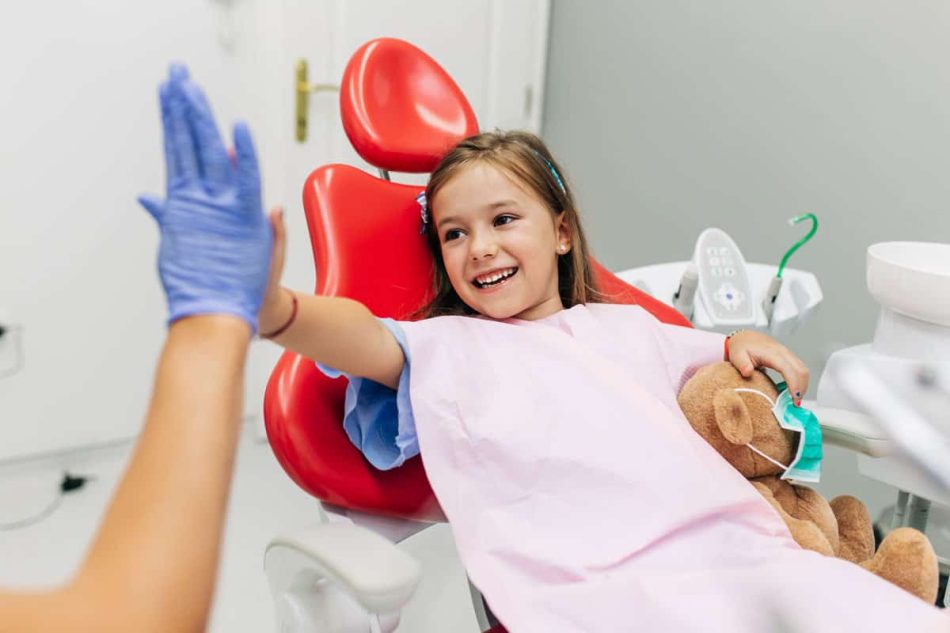Pedodontics refers to the specialist set of dentistry that pertains to children and adolescents, typically under sixteen years of age. Many pedodontists take classes in child psychology as well as their dentistry courses. This helps them to communicate with children in order to keep them calm, as well as to be able to explain the importance of good oral hygiene. Child psychology can also help with office visuals, such as paintings. Also, it is important to be able to communicate effectively with children, who understand on different levels from adults. It is important to be able to explain to children at a young age the necessity of proper dental care. Habits from childhood often follow into adulthood. Good dental hygiene habits learned at childhood and used through adulthood can help reduce many common dental problems, such as bad breath, cavities, enamel erosion, and others. This is important, especially in children, because studies show that lack of good dental hygiene can lead to decreased grades and a lack of self confidence.
Pedodontists also maintain the primary teeth or baby teeth until they are lost naturally. Teeth are important for chewing, developing proper speech patterns, and saving space for permanent teeth. These are all important not only for self confidence, but also for an image to be projected as an adult.
The role of the pediatric dentists changes as children enter adolescence. Recognizing the growing importance of appearance and self-image in their clients pediatric dentists work to ensure that adolescents’ dental needs are met. Preventative dental health care is emphasized and when necessary information is provided to adolescents about subjects such as wisdom teeth tobacco use sealants and oral piercing.
Pedodontics not only aids in the dental health of children but serves as an educational tool for parents. It is recommended by the American Academy of Pediatric Dentistry (AAPD) that a dental visit should occur between shortly after the presence of the first tooth in a child to that child’s first birthday. This is because early mouth examinations aids in the detection of the early stages of tooth decay and can therefore be immediately treated. Additionally parents are given a program of preventative home care (brushing flossing fluorides) a caries risk assessment the latest facts on finger thumb and pacifier habits advice on preventing injuries to the mouth and teeth of their children and information on growth and development.
As the child becomes an adolescent, and then an adult, healthy practices that were taught effectively by trained pedodontists. As these healthy dental hygiene routines are followed, many health issues other than those of the dental variety may be lessened or avoided. These health issues can include diabetes, pneumonia and cardiovascular disease.
Marina Dentistry has trained professionals who have completed dentistry courses, as well as child psychology courses and communication classes. These extra courses add the ability to communicate with children and adolescents on a more comfortable level to the minor. Marina Dentistry accepts most forms of insurance. The staff is professional and accommodating. All communications and records will be maintained in privacy.


